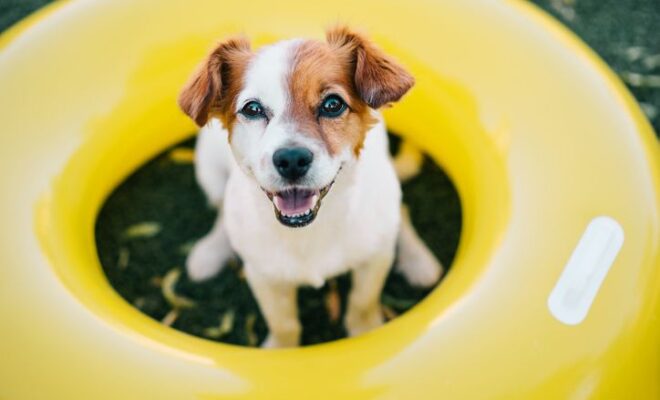Summer Safety Tips for Pets

Most pet owners in Ontario are out and about more during the summer, including many of our pets! But summer has its own set of potential issues. Common sense and preventive actions can help our pets avoid disease and injury. However, if your pet is experiencing any issues, you should consult a Veterinarian in Guelph immediately.
Here are some key precautions to safeguard your pet’s safety this summer.
Prevent ticks, fleas, and other parasites.
Fleas, ticks, mosquitoes, and other parasites are a year-round concern in areas with warm temperatures, but they are most prevalent during the summer months. These pests are not only a nuisance to your dog or cat, but they may also contain tapeworms, heartworms, and illnesses including Lyme, Bartonella (also known as cat-scratch disease, but dogs carry more species of this unpleasant bacterium than cats), West Nile Virus, leptospirosis, and even bubonic plague.
To keep your pet parasite-free, you must take a comprehensive approach and be vigilant, with the assistance of efficient preventives. Consult your veterinarian about what is required in your region.
Never leave a pet in a heated car.
The temperature inside a car may rise dramatically in minutes, resulting in heatstroke and asphyxia. On warm days, it is better to leave your pets at home; if you must go with them, make sure they have access to water.
Cover the essentials.
Secure an up-to-date tag on your pet’s collar and use a leash while going outside. Consult your veterinarian about flea and tick management alternatives, and keep your pet’s vaccines up to date.
Make sure your pets stay cool.
Pets can suffer from heatstroke, so make sure that while your pet is outside, he has access to shade and enough fresh water. To keep the water chilly for longer, add some ice cubes or blocks. Consider using a cooling vest for your dog during hot and humid weather. Avoid jogging or biking with your dog during hot midday temps. Instead, stick to the evening or morning. This is especially critical for short-nosed dogs (Pekes, Pugs, Bulldogs, and so on) or those with double-thick coats or long hair.
Keep their paws from hot surfaces like metal and asphalt.
Walking on surfaces that are too hot can damage their paws and raise their body temperature. Surfaces that feel hot on the back of your hand are not suitable for a pet to walk on.
Be cautious of water.
Not all dogs are natural swimmers, so keep an eye on your pup while you are near a pool, beach, or lake. When visiting the ocean, make sure your pets do not drink the salt water – it upsets their stomachs, just like yours. Watch out for currents; even the finest paddling dog might struggle against a strong undertow.
For more information on how to keep your pet safe in the summer, make sure to speak with your veterinarian.















